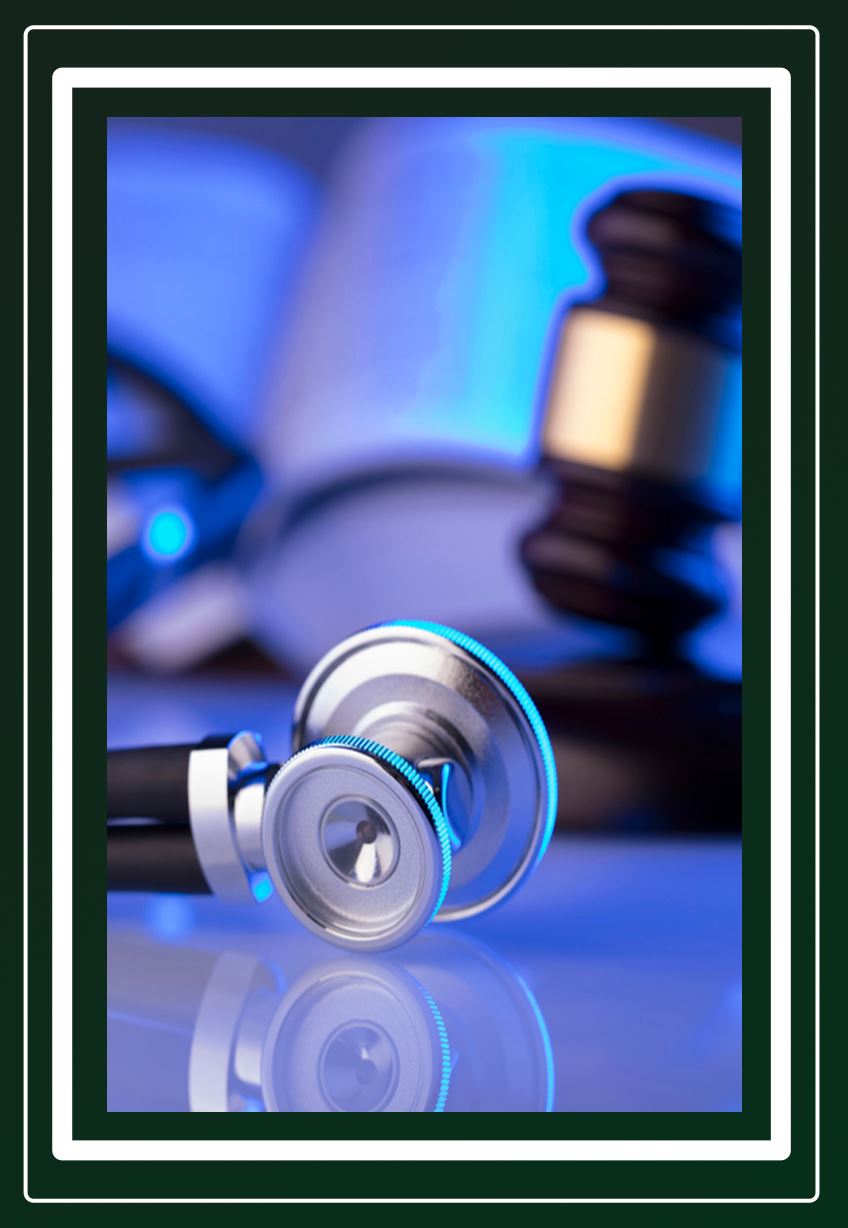Warren County Medical Malpractice Lawyers
We rely on our medical professionals to make the right decisions and to handle complicated procedures safely. There are times when we might rely on and hope for doesn’t come to pass, and sometimes that can be the fault of those we trusted. Medical malpractice lawsuits are a way for those who suffer to seek fair compensation.
A medical malpractice attorney from Galligan & Newman will work you on all facets of your case. For over 40 years we’ve served the people of Warren, White, Van Buren, Grundy, Putnam, and DeKalb Counties. Give us a call at (931) 473-8405 or reach out online today.


Personal Injury
The 4 D’s of Medical Malpractice
There are four things that must be proven to win a medical malpractice case–duty, deviation, damage and direct cause.
Duty
All personal injury cases, medical or otherwise, require that a duty of care be present. That is, the defendant must owe a duty of care to the plaintiff. In many medical malpractice cases this will be self-evident. If you had open heart surgery, the surgeon clearly owed you a duty of care. The night nurse has a duty of care to make sure you receive the right medication and in the right intervals. The pharmacy has a duty of care to see that you get the right prescription.
It is possible for a duty of care not to be present. Let’s say that your grievance is getting bad advice to have that heart procedure done. It turned out it wasn’t necessary and did more harm than good. You have a friend that's a doctor and they gave you the advice.
What were the circumstances around this doctor’s advice? If your families were camping together at Rock Island State Park and they offered their counsel as you lamented your heart issues over a campfire, then it’s likely no duty of care existed. You might have the basis for believing your friend isn’t a very good doctor, but you won’t have the basis for a medical malpractice lawsuit.
But if you get the same advice in this doctor’s office, after making your co-pay? Now, a duty of care is present, and the physician can be held accountable.
Deviation
The next step is to prove that the medical professional deviated from the standard practice of care in your case. Let’s return to the example above. Perhaps the advice you got about your heart condition was the same that most any doctor would have given. Or, at the very least, it was advice that a large number of reasonable doctors would have offered. This is a valid defense in medical malpractice cases.
If you and your attorney believe otherwise, then it’s time to summon expert witnesses. You might go and see a couple other heart specialists. They’ll examine you and look at your previous medical history. What if they testify in court that not only would they not have advised you to undergo the procedure, but no reasonable doctor would have rendered such an opinion? If the court is persuaded by your expert witnesses, then you can establish deviation.
Expert witnesses can be important in a trial of most any kind, but they are particularly necessary in medical malpractice cases. The entire question of deviation essentially boils down to this–What would a reasonable person facing the same set of circumstances have done? A jury can make up their own minds in, say, a slip and fall case where the issues are ones ordinary people meet every day. Understanding what a reasonable person would do in medicine is dependent on testimony from professionals.
Proving the extent of the damages you’ve suffered and connecting them to a medical breach of duty requires diligent legal expertise. Galligan & Newman has been handling these cases for over 40 years. Call our Warren County medical malpractice lawyers at (931) 473-8405 or contact us online .
Damages
If you’ve proven duty and deviation, damages will often be apparent. This is an area that can be a source of dispute in other types of personal injury cases–e.g., a slip and fall case, a person might not have been injured in any substantial way. But given the gravity of medical procedures, if we’re at this stage of the process, it’s quite probable that the reality of damage will be evident to the court.
Direct Cause
This final piece of the medical malpractice puzzle might not be as easy to establish. To continue with our example of a heart procedure, what if the defense argues that the source of your pain and discomfort is another cardiovascular condition you might suffer from? Many patients have pre-existing conditions, and those conditions might be seized upon as a defense.
Your lawyer will again need to bring forth expert witnesses to testify on your behalf. You must demonstrate to the court that this specific act of malpractice–-one which is now proven before the court in the form of duty, deviation and damage–is indeed the direct cause of your current distress.
Proving medical malpractice requires methodical work by a lawyer with a deep understanding of precisely what must be proven at each step of the legal process. Your case further requires an attorney who is networked with expert witnesses–-professionals whose expertise is both real and respected by the courts; especially if you plan to file a wrongful death lawsuit over the alleged malpractice.
Galligan & Newman has been working on these types of cases for over 40 years. We serve the people of Warren County, the surrounding counties and the reach from our McMinnville office goes out to Upper Cumberland. Tell us about your case and we’ll tell you how we can help. Call us at (931) 473-8405 or contact us online to set up an initial consultation.
What Sets Us Apart
We'll Leave No Stone Unturned-
Personalized Attention to Every Client
We care about every client, and will walk you through every step of this process.
-
No Case Is Too Complex
We'll tackle every case with the same dedication, and no case is too big for us.
-
Extensive Trial Experience
We don't shy away from the courtroom, and we have a long history of wins to prove it.
-
Over 100 Years of Combined Experience
Our attorneys have over a century of combined experience; we know what it takes to win for you.

Contact Us Today
We Have Over 100 Years of Experience

